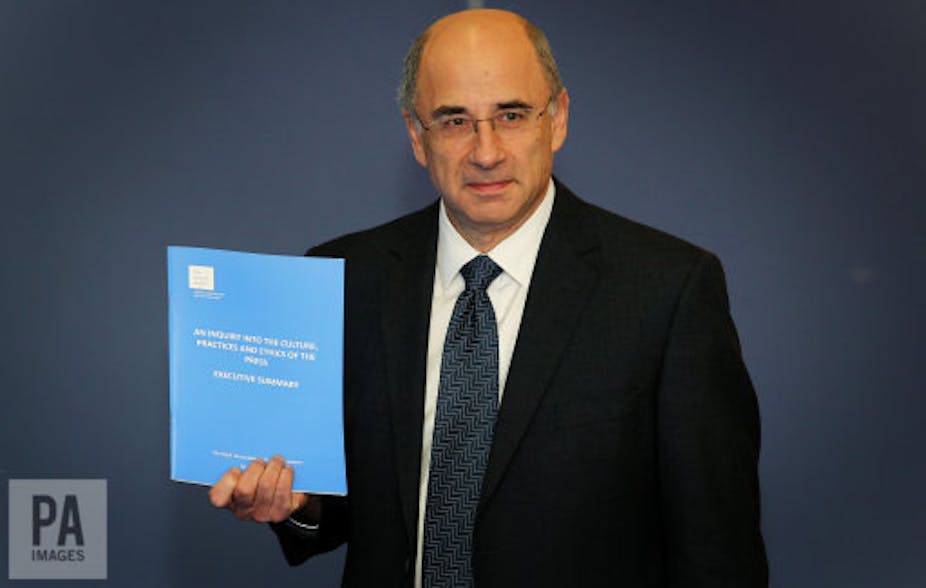The decision by News Group to close its phone-hacking compensation scheme in 2013 has proved to have been expensively premature – with nine more victims, including actor David Tennant and Olympic hurdler Colin Jackson, winning damages at the High Court recently.
Despite that attempt to draw a line under the greatest scandal to hit British newspapers, the saga still has a distance to run – the law firm behind these cases, Collyer Bristow, apparently still has 50 more cases to go from the 200 phone-hacking clients it gained in the seven years since the News of the World folded.
At the same time as the Collyer Bristow cases were being settled, four other celebrities, represented by a different firm, 5RB, including comedian Vic Reeves and TV presenter Kate Thornton, also concluded their cases without the need for a full hearing after News Group struck deals. All are believed to have accepted six-figure damages on top of costs estimated at around half a million pounds.

These settlements are hardly helpful in the ongoing struggle by print media to bring the wider issue of press regulation reform to a conclusion – but nor do they add very much to the already detailed picture of a hacking and blagging operation of industrial proportions, other than the identities of the targets.
The latest proceedings relate to events back as far as 2006 when phone-hacking was uncovered and which led to the first journalist, Clive Goodman, going to jail in 2007 along with private investigator Glenn Mulcaire.
But they keep the phone-hacking pot boiling at a time when Labour and Liberal Democrat peers have just raised the threat of another inquiry into media data handling practices via Lords amendments to the Data Protection Bill, which as framed would be a much wider probe than the Leveson Inquiry was. The legislation is now back with the Commons and must be passed on to the statute books by May 2018.
Read more: Murdochs' defence strategy: 'Sorry, we had no idea what was going on'
Section 40
Another amendment will establish a punitive costs regime for media companies found to have committed data breaches, mirroring the measures contained in Section 40 of the Crime and Courts Act, whereby media companies that have not subscribed to a state-approved regulator will have to meet the costs of both sides in civil court cases, win or lose.
Despite it being law, Section 40 has yet to be triggered by the recently appointed culture secretary, Matt Hancock – and although the Conservative party promised its repeal in its 2017 general election manifesto – the failure to win a majority means the threat remains. Hancock must decide what to do with Section 40, but also whether the Leveson Inquiry is to be revived as Leveson II after being on hold since Sir Brian Leveson’s findings were published in 2012.
Leveson was able to make his recommendations for reform at that point but not carry on with the second part of his task – a detailed probe into the relationship between the police and the press – because of the number of criminal cases still live at the time.
According to the Press Gazette, an estimated 67 journalists were arrested, 57 were cleared and ten convicted. In 2013, a government consultation paper reported that a total of 40 convictions were secured as a result of the various investigations stemming from phone-hacking – such as Operations Elvedon and Weeting – including 11 police officers and 19 public officials.
Each one of those cases involved a full public investigation into the circumstances – and the key participants received a far more exacting cross-examination from the prosecution as accused persons in a criminal trial than they would as witnesses in a non-adversarial civil inquiry.
Unfinished business
The original Leveson II remit was split into five parts: to investigate the extent of improper conduct in News International and other media organisations, how the original 2006 police investigation was conducted, the extent of corrupt payments to the police, management failure at News International. It was also to make recommendations about the future relationship between police and press.
In 2016 the Department of Culture, Media and Sport ran a consultation about Section 40 and the prospect of reviving Leveson II and received 140,000 submissions which Leveson himself has been reviewing, and his conclusions are expected imminently.
It is possible he will argue that the last part of his remit, producing proposals for managing press-police relations, has not been met. But he might also recognise there is more than enough information in the vast quantities of material produced by the criminal and civil cases to produce a plan without having to force witnesses to repeat in another judicial inquiry what they have already told a criminal court.
The pressure from campaigners Hacked Off to reopen the inquiry remains high, and after the Lords amendment was voted through, executive director Evan Harris said:
The victims of press corruption … deserve to know the truth about the illegal and corrupt practices which occurred, as do the thousands of ordinary victims of data breaches committed by or on behalf of newspapers … We urge the government to proceed with the second part of the Leveson Inquiry immediately.
Leveson I cost a total of £5.4m, compared to the £9.7m originally set aside, so the question for Leveson is whether spending some of the £4.3m he didn’t use in 2012 will be money – or time – well spent.

